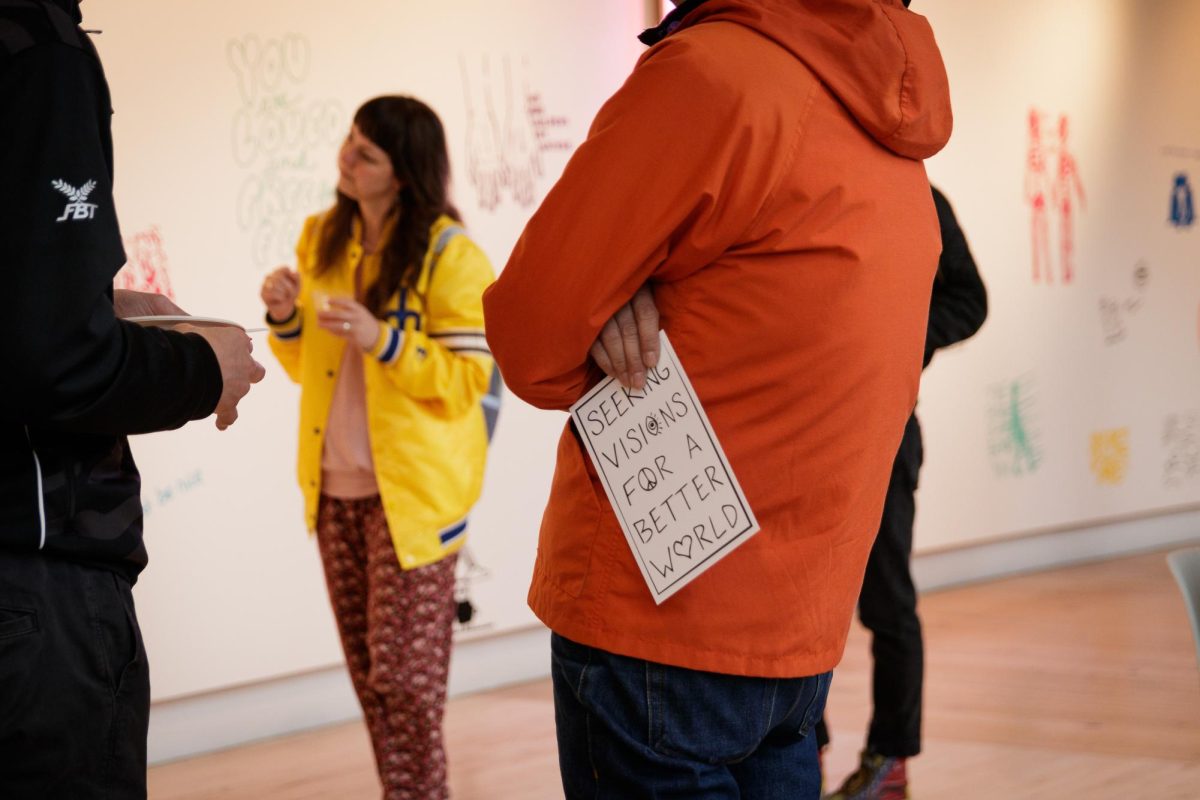“20th Century Women,” the latest feature from director Mike Mills, so smartly captures the realities of growth and loss that it often has the feel of a documentary.
This quality is best explained by the fact that the film’s central character, Dorothea (Annette Bening), is based on the director’s mother. It’s not new territory for Mills to infuse autobiographical experiences into his fictional writing; “Beginners” (2010) told the story of his father, who came out as gay at age 75 and passed away five years later. Though the two films could be considered companion pieces, they stand in stark contrast to one another.
Where “Beginners” saw Mike Mills’ self-inspired character in his mid-30s, “20th Century Women” recalls his experiences as a 14-year-old. But the focus is hardly on the young boy, Jamie (Lucas Jade Zumann). This movie is about the three women who raise him.
Dorothea, an older mom feeling more out of touch with her son as each year passes, enlists two young women to help ensure Jamie becomes a respectable man.
First is photographer and cancer survivor Abbie (Greta Gerwig), who rents a room in Dorothea’s sprawling, messy house. Then there’s Julie (Elle Fanning), a troubled 16-year-old Jamie is in love with—or so he thinks.
Their combined perspectives on the world, both coming from much younger viewpoints than that of Dorothea, help enlighten Jamie on complex topics like sex and women’s rights. But Dorothea begins to worry as the movie progresses that her plan to see Jamie thrive is forcing him to grow up too quickly.
Set in 1979 Santa Barbara, “20th Century Women” checks off all the bullet points of a period piece. Birkenstocks, slouchy pants and box-dyed red hair mark the generational gaps between characters. Music from Black Flag and Talking Heads scores the film almost entirely. And there’s no better reminder of the era we’re in than a scene showing the characters crowded around a TV to watch President Jimmy Carter give a speech about America’s “crisis of confidence.”
“He’s screwed,” one character says after the speech, to which Dorothea responds, “I thought that was beautiful.”
But the similarities between then and now are hard to look over, and the 40 years separating these characters from life today seem almost nonexistent as they deal with cultural shifts in art, music and the feminist movement.
Like “Beginners,” the movie is narrated from the future by its characters. Jamie’s adult voice tells us about his mother’s impact on his life, while Dorothea occasionally comes in as an overdub—speaking not to the audience, but to her son.
Also reminiscent of “Beginners,” the cinematography is gorgeous, and anyone can appreciate this movie on an aesthetic level.
Still, the biggest achievement of “20th Century Women” is that its characters feel like real people. It overcomes the irritating tendencies so many “indie” films slip into: to prioritize plot over character development; to offer dialogue that sounds smart on a page but forced coming from someone’s mouth in conversation; to exaggerate characters’ quirks to the point of caricature. Finally, it doesn’t shy from creating female characters that are complex, and at times unlikeable.
And that’s so incredibly refreshing. It is all too rare to see women portrayed in film as they are in reality, and the balance Mills finds between movie-charm and realism is impressive.
Scene-to-scene, “20th Century Women” could definitely be critiqued for lacking focus. At one point in the movie, Abbie takes photos of items she owns—a bra, a tube of lipstick, even a photo of a photo—and combines them to create a “self-portrait.” Her project is similar to how this movie comes together; a series of moments that don’t necessarily relate in obvious ways, but that together feel representative of a place in time.
After Saturday’s Women’s March on Washington, which over 3 million people around the world participated in, there is hardly a better time than now to see a movie that celebrates women. If nothing else, this film is worth seeing for a typically stellar performance from Annette Bening.
“20th Century Women” is currently playing at the SIFF Cinema Egyptian in Capitol Hill and at the Regal Meridian 16 downtown.
Jenna may be reached at
[email protected]







![Jordan Ward [REVIEW]](https://seattlespectator.com/wp-content/uploads/2024/04/ward_1-1200x800.jpg)

![COWBOY CARTER [REVIEW]](https://seattlespectator.com/wp-content/uploads/2024/04/Screenshot-2024-04-10-at-7.37.52 PM-1200x699.png)
